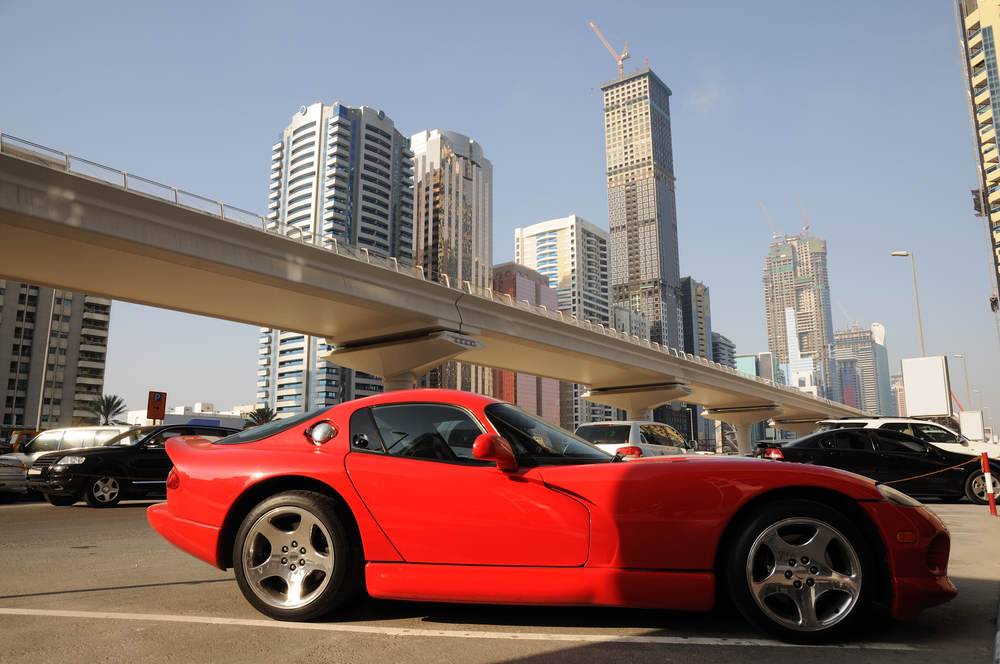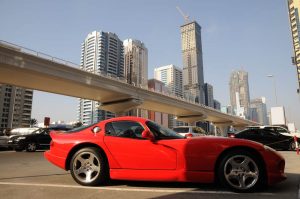
This article describes the legal obligations that have to be fulfilled when a car (for private use) from the EU is brought into the Netherlands before it will be allowed on the Dutch roads. It also offers practical advice and tips to make the process of obtaining a Dutch vehicle registration certificate run smoother.
Exemption from BPM
Plausibly the most important piece of information to know is that when a car is being imported to Holland the – often very expensive – cost of BPM (tax on passenger cars and motorised vehicle in the Netherlands) can be avoided. Dutch customs will not claim tax on an imported car if that vehicle makes part of the household effects.
A form to apply for exemption from the BPM can be downloaded from the website of Dutch customs: vrijstelling bpm – Vrijstelling bpm bij verhuizing (application form for a licence granting exemption from bpm upon moving). There are certain conditions such as that the car has to be abroad for a minimum term of 1 year.
Although this is a very important document that can save immigrants a lot of money, it is only available in Dutch and it is not well indicated for foreigners to find (no direct link ). It is also advisable to start with the application procedure as soon as possible as the outcome can take up to eight weeks and without the form customs will charge BPM.
Steps to obtain a Dutch Vehicle Registration Certificate in Holland
The following procedure should be followed when importing a passenger vehicle form the EU into the Netherlands:
Take the passenger vehicle to a RDW inspection station for an inspection. There are several RDW stations in the country and they can be visited between 08.00 en 12.00h or upon appointment. For the journey to the inspection station and back you can make use of a one day vehicle registration.
Don’t forget to take all the necessary documents with you: the original and complete vehicle registration certificate from the country of origin. A Certificate of Conformity (COC) (when the car was manufactured in 1995 or later) can be very useful since it provides detailed information (also needed for filling in the paperwork for the BPM calculation). Furthermore, take your passport and the documents of your registration into a Dutch community (BSN number).
The RDW does not check the technical condition of the car. However, if your vehicle is (nearly) due for the periodical inspection (APK), then it must have an APK approval. The APK approval can be done at the RDW station when you are there or later in a certified garage.
Once the vehicle has been inspected, it can be taken to the BPM declaration point at Customs which is located at the RDW inspection station. Again, make sure all the required documents are present and be thorough in completing the BPM calculation form otherwise customs will surely make you come back another time. The calculation of the BPM has to be done in advance and can be quite complex (it also has to be filled in if you’re applying for an exemption of BPM). Tip: Autotelex does all the calculations (and the necessary appendixes) for you and presents them in a professional manner (costs: 16 euros). Dutch customs seem to be more likely to accept your calculations if done by this internet service.
BPM will send a mail requesting payment. Once the payment is done, RDW will send you the vehicle registration certificate. Once you have received the vehicle registration certificate, you must arrange for number plates to be made yourself, at a designated number plate manufacturer.
All that is left to do now is pay the Dutch road tax and get the car insured before you can finally go explore the land of the cheese and wooden clogs.
Importing a EU car into the Netherlands can be an expensive and tricky venture. The taxation on passenger cars is high in Holland, but when a car belongs to the household effects upon moving, the BPM might likely be dismissed. The information given in English on the various relevant websites could be more detailed to prevent misunderstandings and frustration. The steps and insights in this article aim to assist anyone looking to import a passenger car from the EU into Holland.


